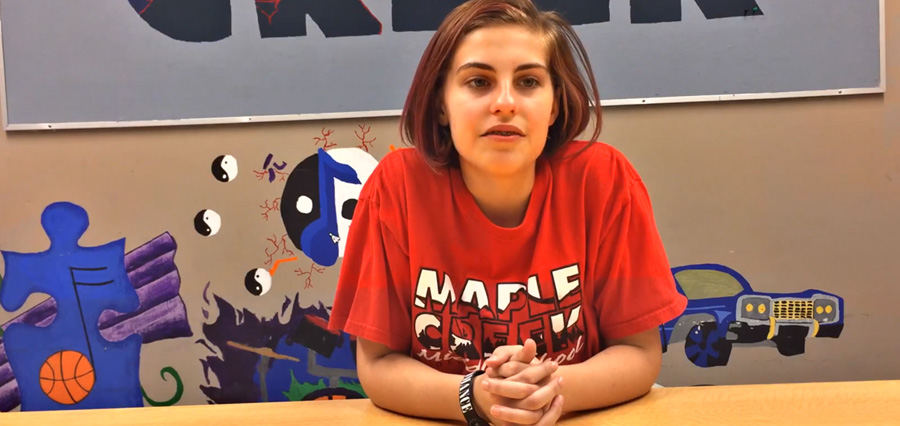Overview
In 2010 the staff at Maple Creek noticed that even though there were student leadership opportunities, many students, especially the more vulnerable ones, were not getting involved in school clubs and activities which built on student empowerment. Over the next four years the staff focused on building a more caring learning environment which provided more leadership programs; promoted more student engagement; and connected vulnerable students with programs that closely matched their needs. Now, significantly more students have joined activities and programs, are more connected and empowered, and are making a positive difference in their own lives and in the lives of others.
Our Approach
We adopted a “Circles of Support” model to maintain strong connections for all students, making sure that each student, especially the most vulnerable ones, is supported at the home/family, school and community level.
One of the first steps in bolstering the school circle of support was a school-wide implementation of the LEADS conflict resolution model. In the same year we started a peer mediation program, training 30 students annually to promote and model solving problems in peaceful ways. Transition programs were improved for both incoming students, and to prepare students for the transition to high school.
Connectedness has also been fostered through a wide range of small counselling groups targeting different students. The various groups address anxiety, social skill development, loss, anxiety, stress, family break-up, self-advocacy, self-esteem issues, gender identity issues and challenges fitting in. In the RAC (Real Acts of Caring) Club, students focus on doing kind and caring acts and not expecting anything back in return. The RAC Club has proven to be very meaningful to students, with the number of students participating increasing from 15 to 144 over the last four years. The program has also been adopted by several other schools in the Coquitlam School District, the Okanagan, and Prince George.
Programs and supports are also in place to support the family and community circles. School staff continue to provide support to our families and regularly connect them with outside agencies that help them with parenting-related issues. A great range of community programs such as Big Brothers, Big Sisters, Game On, Go Girls, cooking programs, acting classes and Red Cross babysitting are offered at the school, and build connections with our students and their families with these community partners.
Quick Tips
- Kindness initiatives, like Maple Creek’s Real Acts of Caring can be a strong first step in starting a school-wide focus on school and community connectedness
- Resist the temptation to discourage your students’ overly ambitious ideas. A supportive “what steps do you think it will take to make this happen?” will empower them and start them on a planning process to bring their ideas to fruition. You’ll be amazed at what they are capable of doing!
SC Strategies
- School leadership has established structures that support connectedness such as Circles of Support and the LEADS conflict resolution model.
- Real Acts of Caring and peer mentoring support the development of social, emotional skills in students.
- Caring relationships and belonging are fostered through targeted groups, Real Acts of Caring and by creating a Circle of Support for identified students.
- Professional learning through inquiry has helped identify and apply strategies to create a culture of caring and connectedness.
- Family involvement has increased by bringing community-based programs into the school.
Resources
- JCSH Youth Engagement Toolkit: Provides a “how-to” resource of effective practices, research and rationale to support youth engagement in schools and communities.

- Real Acts of Caring (website, 2015) Students, former students, families and staff of Maple Creek share their passion for “doing something kind for another and expecting nothing in return.”

- Teaching Kindness in Schools (series of articles) Edutopia.
- HeartMindOnline: Dalai Lama Center for Peace and Education. Evidence-informed knowledge, insight and resources that support educators and parents in responding to the social and emotional learning needs of students.

- Learning by Heart: The Power of Social-Emotional Learning in Secondary Schools (report, 2014). B. Cervone; K. Cushman. An investigation into what it would it take to weave social and emotional learning (SEL) into the daily fabric of high schools, identifying distinct practices, programs, and structures that help schools embed SEL into ongoing teaching and learning.
